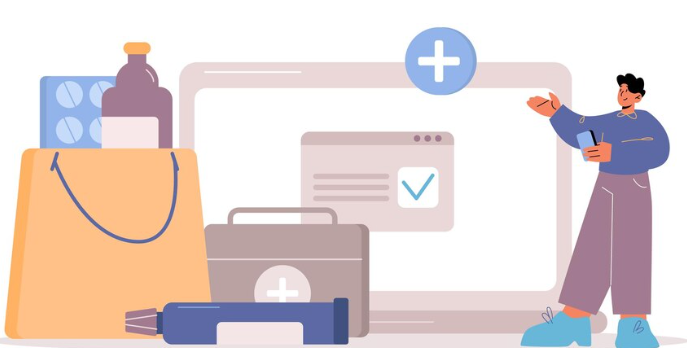In today’s digital age, the convenience of online shopping extends to medications, allowing people to order prescribed drugs and have them delivered right to their doorstep. While online medicine delivery offers convenience, it’s natural to wonder about its safety. In this blog, we’ll delve into the pros and cons of ordering medicines online to help you make an informed decision about the safety of this practice.

Pros of Online Medicine Delivery:
1. Convenience and Accessibility: Online medicine delivery provides unparalleled convenience, especially for individuals with mobility issues, chronic illnesses, or busy schedules. With just a few clicks, patients can order their medications and have them delivered to their homes, saving time and effort.
2. Privacy and Confidentiality: Ordering medicines online offers a discreet way for individuals to purchase medications, particularly those that are sensitive in nature. Patients can avoid potential embarrassment or judgment they might face when buying certain medications in person.
3. Wide Range of Options: Online pharmacies often offer a broad selection of medications, including both prescription and over-the-counter drugs. This variety allows patients to find specific brands or generic alternatives, catering to their preferences and budgets.
4. Potential Cost Savings: Online pharmacies might offer discounts and deals, allowing patients to save money on their medications. Additionally, the ability to compare prices across different platforms empowers consumers to make cost-effective choices.
Cons of Online Medicine Delivery:
1. Risk of Counterfeit or Substandard Drugs: One of the primary concerns with online medicine delivery is the presence of counterfeit or substandard drugs. Some online pharmacies operate illegally, selling medications that may be ineffective, expired, or even dangerous.
2. Lack of Pharmacist Guidance: In traditional brick-and-mortar pharmacies, pharmacists provide essential guidance on medication usage, potential side effects, and interactions. Online platforms might lack this personalized guidance, which is especially critical for complex prescriptions.
3. Prescription Verification Challenges: Reputable online pharmacies require a valid prescription for prescription medications. However, some websites may bypass this requirement, allowing individuals to order medications without proper medical oversight, potentially leading to misuse or adverse effects.
4. Data Security Concerns: When providing personal and medical information to online pharmacies, there is a risk of data breaches or unauthorized use of sensitive data. It’s crucial to ensure that the chosen online pharmacy follows stringent data security protocols.
Tips for Safe Online Medicine Delivery:
- Choose Reputable Pharmacies: Opt for well-known, licensed online pharmacies that require valid prescriptions and have a physical address and phone number.
- Check for Certification: Look for certifications like Verified Internet Pharmacy Practice Sites (VIPPS) to ensure the pharmacy meets industry standards.
- Consult Your Healthcare Provider: Discuss your intention to use online pharmacies with your healthcare provider to verify the legitimacy of the platform and the prescribed medication.
- Protect Your Data: Use secure payment methods, ensure the website has a secure connection (look for “https” in the URL), and review the pharmacy’s privacy policy.
In conclusion, while online medicine delivery offers unparalleled convenience, it comes with potential risks. By exercising caution, choosing reputable platforms, and involving healthcare professionals, individuals can navigate the online pharmacy landscape more safely, ensuring they receive genuine and effective medications at their doorstep.
